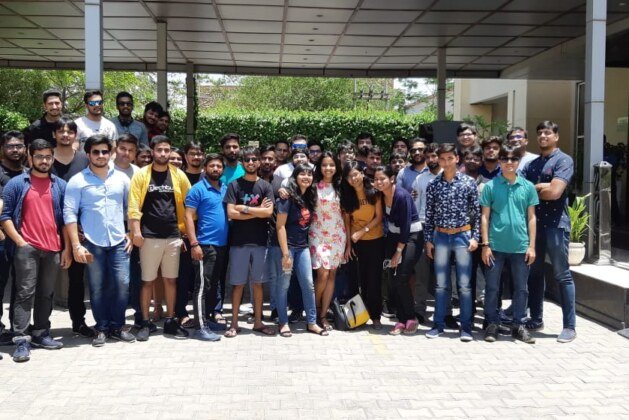Indian Retail is the most dynamic and fast-paced industry. The retail industry contributes more than 10% to India’s Gross Domestic Product (GDP). Since retail business is considered the most brilliant industry, Artificial Intelligence is able to function as a boon for retail businesses that gather as well as possess the consumer Data. This information is able to assist the businesses in order to run meaningful conclusion, recognize the consumers as well as to generate personalized shopping experiences.
There is one such Indian Start-up which is redefining the experience of retailers in the modern data-driven ambience.
Started by three friends Mukhtab Mayank Shrivastava (graduated from BITS Pilani), Angam (graduated from IIT Kharagpur) and Ankit (graduated from IIT Kharagpur).
About the Founders
Muktabh Mayank Srivastava: I lead the AI technology team at ParallelDots. Apart from building our awesome AI product, we have published Machine Learning papers in many reputed conferences and journals. I graduated from BITS Pilani in 2012 with majors in Information Systems and was a Data Scientist at Opera Solutions before I started ParallelDots with my cofounders Angam and Ankit. I also write about Data Science and programming on Quora where my answers have over 2.5 Million views.
Angam Parashar: Angam is our CEO. He is a graduate from IIT Kharagpur and was a consultant at Opera Solutions where I first met him.
Ankit Narayan Singh: Ankit is our CTO. He is a graduate from IIT Kharagpur where he and Angam were fast friends. He was part of IIT Kharagpur’s E-cell during his studies where the startup bug bit him. He resigned his job at Rio Tinto, Australia and came to India to start ParallelDots. He is a self-taught programmer.
Here are the excerpts of an interview with one of the Co-founders, Muktabh

Muktabh, Co-founder, Chief Scientist, Parallel Dots
What are the concept and the objective behind your business?
The basic concept behind our business is “What is seen is sold”. A customer makes most of the buying decisions on the shop floor. Our objective is to help consumer goods companies make their sales execution better so that their products are more visible to buyers.
What are the solutions you are focusing on?
Our AI and Computer Vision Algorithms can do the analysis of retail shelves and extracts multiple insights helping CPG (Consumer Packaged Goods) companies measure their sales execution.
Let assume a company that makes potato chips. It is important that the chips (advertisement on the packet of the chips) are visible to the customer when they are in a Kirana store or Super Market Store. With the help of our product stores across the country can be analyzed for whether and how the chips (and the catchy advertisement) are visible to the customers in the stores
How you are using analytics & AI in augmenting your products and services?
I think this question would be of a lot of interest to the readers of the AnalyticsJobs magazine. Our product combines AI, Data Engineering and Analytics to deliver insights around the sales execution of CPG companies. Let me share the usage of each of the technology in detail:
1. Data Engineering: Millions of images and thousands of videos need to be uploaded, processed and analysed by our AI pipeline. This is possible due to scalability that cloud providers offer for parallel computing. We use tools like Apache Airflow and RabbitMQ to move GBs of data around to many different services analysing it.
2. AI: Images, Videos and other data from retail shelves are analysed by AI and Computer Vision algorithms to extract insights. The algorithms we use are Deep Learning based image recognition, keypoint detection/matching, image retrieval and object detection. We develop a new state of the art methods in our R&D efforts to make sure we get the best possible accuracy. This in-house research we do to develop and improve our technology has been published in reputed AI conferences and journals like NIPS workshops, ICIAR, ISBI etc.
3. Analytics: Pandas (and its distributed variant disk) is used to create analytics engines which crunch numbers on the output generated by AI algorithms and other metadata. This analytics results in getting different statistics that matter to the client and can be used to rectify their sales execution at the store level, city level and country level.
Are you a solution provider in AI? If yes, what are your offerings?
Our product is AI-first (that is we are selling AI capabilities directly rather than enhancing our product with AI). We apply Computer Vision on retail shelves to calculate multiple metrics which can be used by CPG companies to improve their sales execution. We use multiple Deep Learning modules to achieve the required goals. These modules solve different use cases for CPG companies:
1. Planogram Compliance: Planograms are well-researched product placement plans that CPG companies want to ensure in different retail stores to get the best eyeballs and hence sales. We help track Planogram Compliance of different stores automatically using AI.
2. Share of Shelf Monitoring: An important measure for a CPG company is how many shares of retail space are their products getting with respect to their competitors. This is another automated insight that we provide using our AI algorithms.
3. Presence of Marketing Materials: CPG companies also want to know whether their marketing materials are present in shops and whether they are optimally placed. This is tracked by Object Detection AI algorithms.
4. The purity of Endcaps and brand assets: Endcaps are relevant areas in retail where a CPG company pays to ensure only its products/posters are present. Similar is the case with brand assets (like branded fridges and shelves). AI can help ensure that RoI is achieved.
5. Planogram Research: Designing an optimal planogram requires multiple eye-tracking studies. AI helps to reduce the time in this research
Our typical client buys a mix and match of the modules to monitor their sales execution.
What is your biggest challenge?
Enterprise business has a large sales cycle. The key to success here is to have a large pipeline of clients. To maintain a large enterprise client pipeline with the resources of a startup is a challenge. To solve this problem, we are a) building a sales partner network and b) getting the process of data transfer and trying to set up demos etc. in autopilot mode, so that we can handle multiple leads.
Who are your competitors and how do you differentiate yourself from them?
There are multiple competitors in the market. You have large startups like Trax (which is a unicorn), and Planorama (now acquired by Trax). Other notable startups that work in this space are Clobotics and Vispera. Our key differentiator is the technology advantage we are creating through our product which helps us
1. Deploy our solution faster.
2. Doesn’t require maintaining and updating large training datasets for each client because CPG introduces new products and packaging very fast making the process of training dataset maintenance really hard and
3. Few shot learning based state of the art technology which can learn from just a few mistakes being pointed, thus creating a learning feedback cycle
4. Given the technology optimizations I just mentioned, we are much more efficient and thus have a pricing advantage too. All the points mentioned are driven by our expertise in Deep Learning research and our recent research focus on concepts of Few Shot Learning and Self Supervised Learning. We are soon coming up with papers which show the state of the art results of our retail computer vision technology, so stay tuned.
What are your future plans to scale up your business?
Good question. A lot of our early clientele was relationship-driven sales which builds deep relationships but takes time to convert. To speed the process up we are building a sales partner network around the globe. We now have sales partners in all major geographies. Parallel to the partner channel, we are also increasing our outbound sales trying to cover a majority of the market.
What are the career opportunities within your organization?
Another question which I think will be very interesting to AnalyticsJobs readers. As I mentioned earlier, there are multiple technology roles we are always looking for candidates in. We hire Data Engineers which make our data pipelines transferring GBs Data from one service to another in sync and error-free way. They also write fast and optimized analytics to convert the huge piles of data into information that can be used in the real world. We hire Machine Learning engineers who train Machine Learning pipelines and invent new algorithms for the purpose. We hire frontend/react-native developers who write the interfaces of our tool and work on our data capturing mobile app. We also hire QA engineers who write automated tests for these big data applications. Backend/DevOps engineers write scalable Python (and sometimes Go) services to keep the entire technology stack up.
According to you what makes a leader?
According to me, a few qualities which define a leader are:
1. Leading from the front rather than leading from the top. As a leader, you are supposed to make decisions, but unless you have what Taleb calls “skin in the game”, you will not make a decision that takes your people into account. Not taking people into account will never get you trust. There is no leader without trust. Leading from the front to me means having skin in the game.
2. A leader needs to be brave and get out of their comfort zone. If the leader gets stuck in their comfort zone, they will become less agile. Adaptability is very important.
3. Empathy. It is a massively underrated human quality according to me and is a must in a leader.
What is the best learning you have in your career and who is your best teacher?
The best teachers are books and the internet. There is so much out there to learn for free! All you need is motivation and hard work. If you look at my Quora answers and Twitter, I keep pointing people to freely available books and resources on the internet which people can use to learn. The most important skill which I think I have developed (and is probably the best learning in my career as of now) is sifting through this massive information in the fields I like and finding relevant things to read.
2 key lessons for young minds
1. There is no substitute for the trinity of hard work, planning and adaptability. If you loosen even one of them, you run the risk of becoming idle, directionless and rigid.
2. Use the internet to learn. There is too much information available on the internet to learn new things and get knowledge from. Ask for help about what to learn and then put in the effort (ask from me on Quora if you have any doubts in fields I have knowledge of). Learning takes you a long way.



